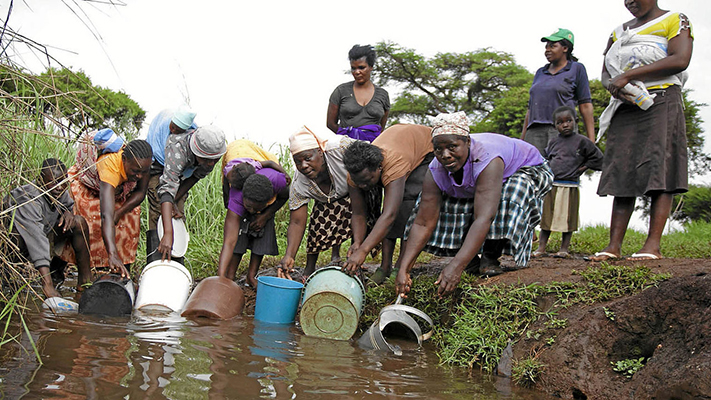Cholera outbreak fears loom in Zimbabwe
By Silence Gwande
With the rains upon us and council authorities throughout the country failing to provide clean water to the growing Zimbabwean population, there are strong fears of an increase in the outbreak of water borne diseases like cholera, typhoid and diarrhoea.

Major cities like Harare, Bulawayo, Mutare and Masvingo are the hardest hit due to councils’ gross failure to provide clean water to the residents resulting in taps running dry for months.
Other suburbs like Mabvuku in Harare last received water from taps a decade ago.
The mushrooming of new settlements around the cities is a cause for concern and there is a high risk of water borne disease outbreaks with a number of cases of diarrhoea, dysentery, cholera and others recorded every year.
Water leakages due to dilapidated water distribution systems and outmoded pipes have compounded difficulties and hitches.
Those who have the privilege to get water just use it for washing and cooking.
The water is not safe to drink because it is contaminated.
There is no meaningful treatment that is being done.
The councils’ failure to supply safe, clean water has long been a challenge for the country’s growing population.
More than 4 000 people lost their lives during an outbreak of cholera in 2008 to 2009 with thousands more affected throughout the country.
Environmental Management Agency (Ema) is fearful and recently warned of a potential cholera outbreak in Beitbridge if no measures are put in place to address waste management challenges and collection of refuse before rains start.
“With the Meteorological Services Department forecasting floods this season, the government and its partners should complement council efforts to deal with environmental challenges affecting the town”, said Ema’s acting board chairman Felix Moyo.
Between 2008 and 2009 Beitbridge recorded 26 percent cases of cholera.
Recently cases of cholera have been reported in Mwenezi in Masvingo Province due to water shortages leaving people scrambling for little dirt water left in the rivers with wild and domestic animals.
Bulawayo Residents Association bemoaned water crisis in Bulawayo pointing out the need to increase more catchment areas to cope up with increasing population in the city.
“There is dire shortage of water in Bulawayo and people are going for two to three weeks without water and as such there is need for more water catchment areas to sustain the growing population,’’ the spokespersons said.
The population in Harare and Bulawayo is rapidly increasing due to new settlements around the cities and influx of people as a result of economic hardship causing rural to urban migration looking for greener pastures. Daily News






